Keynote Speakers
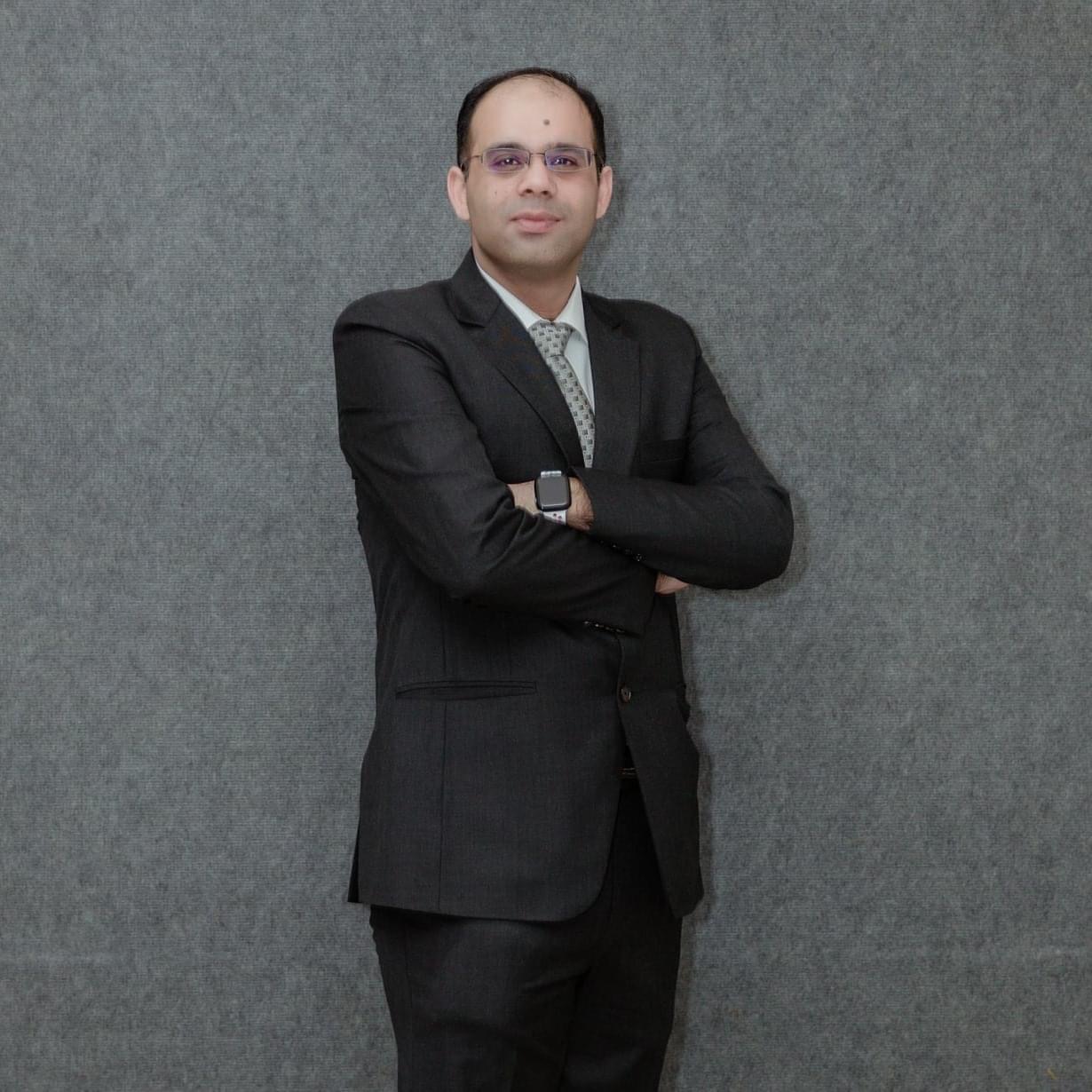
Anand Nayyar
Professor
Duy Tan University
Speech Title:TBD
Abstract:TBD
Biography: Dr. Anand Nayyar received Ph.D (Computer Science) from Desh Bhagat University in 2017 in the area of Wireless Sensor Networks, Swarm Intelligence and Network Simulation. He is currently working in School of Computer Science-Duy Tan University, Da Nang, Vietnam as Professor, Scientist, Vice-Chairman (Research) and Director- IoT and Intelligent Systems Lab. A Certified Professional with 280+ Professional certifications from CISCO, Microsoft, CompTIA, Amazon, Alibaba Cloud, Oracle, Google, Salesforce, Tableau, FinOps, Beingcert, EXIN, GAQM, Cyberoam and many more. Published more than 200+ Research Papers in various High-Quality ISI-SCI/SCIE/SSCI Impact Factor- Q1, Q2, Q3, Q4 Journals cum Scopus/ESCI indexed Journals, 80+ Papers in International Conferences indexed with Springer, IEEE and ACM Digital Library, 60+ Book Chapters in various SCOPUS/WEB OF SCIENCE Indexed Books with Springer, CRC Press, Wiley, IET, Elsevier with Citations: (Google Scholar): 21600+, H-Index: 74 and I-Index: 300; (Scopus): 12000+; H-index: 58. Member of more than 60+ Associations as Senior and Life Member like: IEEE (Senior Member) and ACM (Senior Member). He has authored/co-authored cum Edited 70+ Books of Computer Science. Associated with more than 600+ International Conferences as Programme Committee/Chair/Advisory Board/Review Board member. He has completed 1 Grassroot and 1 ASEAN Project. He has 18 Australian Patents, 16 German Patents, 4 Japanese Patents, 44 Indian Design cum Utility Patents, 13 UK Patents, 1 USA Patent, 3 Indian Copyrights and 2 Canadian Copyrights to his credit in the area of Wireless Communications, Artificial Intelligence, Cloud Computing, IoT, Healthcare, Drones, Robotics and Image Processing. Awarded 55 Awards for Teaching and Research—Young Scientist, Best Scientist, Best Senior Scientist, Asia Top 50 Academicians and Researchers, Young Researcher Award, Outstanding Researcher Award, Excellence in Teaching, Best Senior Scientist Award, DTU Best Professor and Researcher Award- 2019, 2020-2021, 2022, 2022-2023, 2023-2024, Distinguished Scientist Award by National University of Singapore, Obada Prize 2023, Lifetime Achievement Award 2023, 2024; Asian Admirable Achievers 2024; Distinguished Academic Leader 2024, Lifetime Achievement Award 2024 and many more.
He is listed in 2% Scientists as per Stanford University (2020, 2021, 2022, 2023, 2024, 2025), Ad Index (Rank No:1 Duy Tan University, Rank No:2 Computer Science in Viet Nam) and Listed on Research.com (Top Scientist of Computer Science in Viet Nam- National Ranking: 2; D-Index: 56; World Ranking: 3694).
He is acting as Associate Editor for Computer Communications (Elsevier), International Journal of Sensor Networks (IJSNET) (Inderscience), Tech Science Press- IASC, Cogent Engineering, Human Centric Computing and Information Sciences (HCIS), IET-Quantum Communications, IET Networks, IEEE Transactions on Artificial Intelligence (IEEE TAI), Indonesian Journal of Electrical Engineering and Computer Science, IJFC, IJISP, IJDST, IJCINI, IJGC, IJSIR, IJBDCN, IJNR, IJSI, IJIES. He is acting as Managing Editor of IGI-Global Journal, USA titled “International Journal of Knowledge and Systems Science (IJKSS)”. He has reviewed more than 5500+ Articles for diverse Web of Science and Scopus Indexed Journals. He is currently researching in the area of Wireless Sensor Networks, Internet of Things, Swarm Intelligence, Cloud Computing, Artificial Intelligence, Drones, Blockchain, Cyber Security, Healthcare Informatics, Big Data and Wireless Communications.
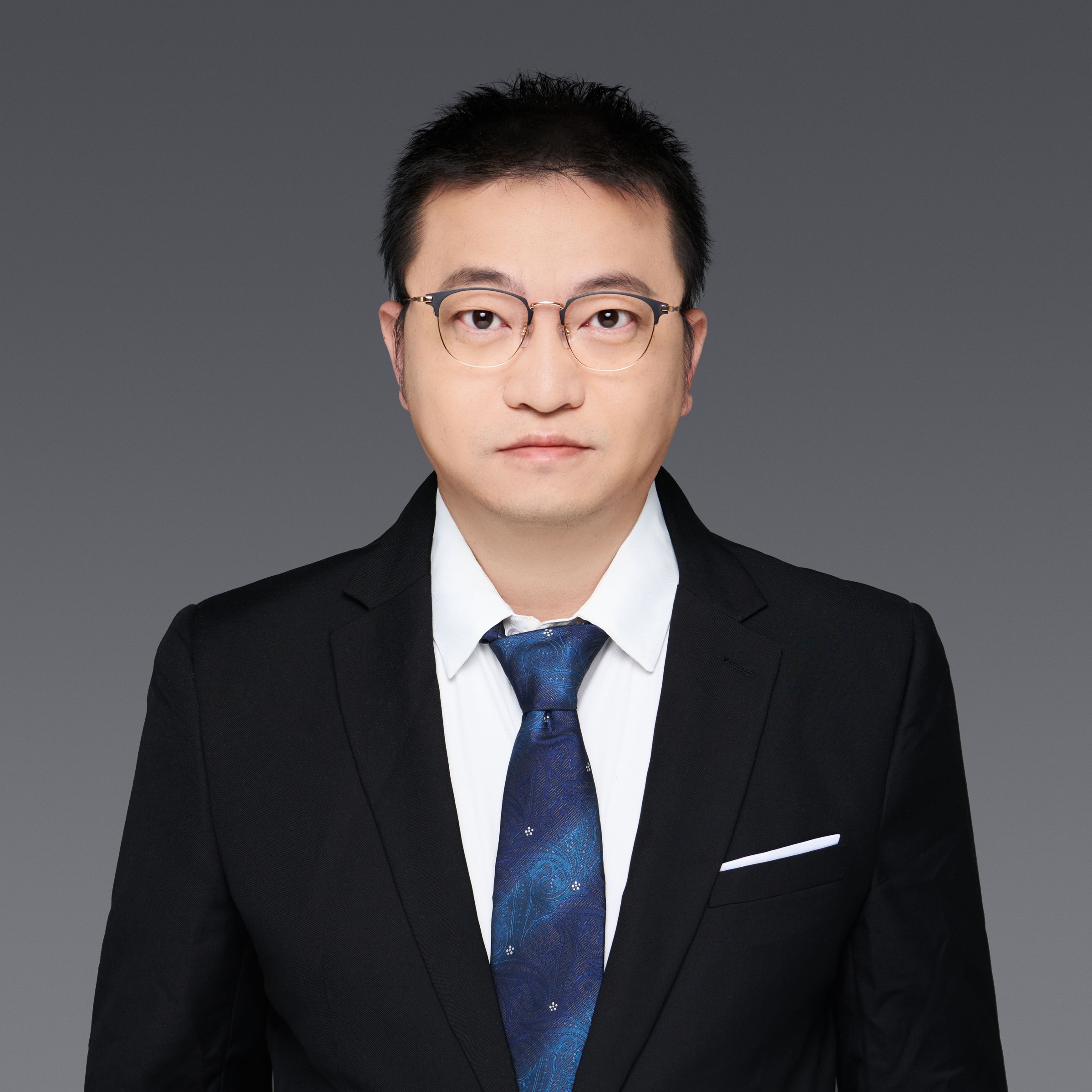
Tao Zhang
Professor
Macau University of Science and Technology
Speech Title:AI-Powered Software Data Analysis for Automated Software Engineering
Abstract: With the rapid growth of AI, it deeply influences almost all of computer science, especially for software engineering. The software development process generates a large amount of corpus data (such as defect reports, source code, logs, etc.). How to use these corpus data to better implement automated software engineering tasks is a big challenge. The difficulty lies in the semantic gap between natural language and programming language. In this new era, generative AI can help automatically produce more reliable source code, patches, commits, code comments, and responses to user reviews by deeply analyzing the semantic relations between natural language and programming language. For achieving the best performance of automated software engineering tasks, a lot of software engineering scholars walk through a long road. For our team, we started from the initial reliance on bug reports or user review information to perform a single automated software engineering task. By establishing a unified neural network model and a unified representation model for bug reports, we constructed a set of methods that can achieve multiple automated software engineering tasks. In the process, we discovered the over-interpretation problem of pre-trained language models when implementing automated software engineering tasks, and proposed mitigation strategies. Following this way, depending on the huge power of LLMs, we proposed a series of new models and corresponding tools to enhance the performance of automated software engineering tasks.
Biography: Dr. Tao Zhang is a Full Professor at the School of Computer Science and Engineering, Macau University of Science and Technology (MUST), Macau SAR. He received his Ph.D. from the Department of Computer Science and Engineering at the University of Seoul. After that, he spent one year at the Hong Kong Polytechnic University as a Postdoctoral Research Fellow. He received his B.S. in Automation and M.Eng in Software Engineering from Northeastern University, China. Tao serves as the Founding Chair of the IEEE Computer Society Macau Chapter and the Conference Chair of the IEEE Computer Society Technical Committee on Software Engineering (TCSE). He is a distinguished member of CCF and a senior member of ACM & IEEE. He published more than 100 high-quality papers in renowned software engineering and security journals and conferences, such as ICSE, ESEC/FSE, ASE, TSE, TOSEM, EMSE, JSS, IST, TIFS, TDSC, and TSC. He serves/served as General or Program Chair of numerous academic conferences, including APSEC 2025, ASSS 2025, Internetware 2024, SANER 2023, and DSA 2021. He also serves as the PC member of several top-tier SE conferences, including ICSE, FSE, ASE, and ISSTA. He is currently an Associate Editor for IEEE Transactions on Software Engineering (TSE), IEEE Transactions on Reliability (TRel), and the Journal of Systems and Software (JSS). He is also an Editorial Board Member for Empirical Software Engineering (EMSE) and Science of Computer Programming (SCP).
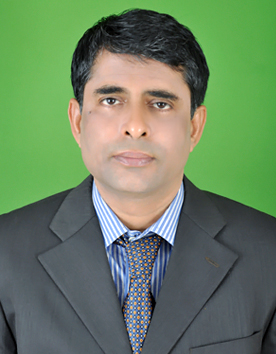
Umesh C. Pati
Professor
National Institute of Technology, India
Speech Title:Video-based Intrusion Detection System Using Deep Learning Techniques
Abstract: There is a huge demand for video surveillance-based intelligent security systems that can automatically detect unauthorized entry or mal-intentional intrusion into the unattended
sensitive areas and notify the concerned authorities in real-time. A novel video-based Intrusion Detection System (IDS) using deep learning techniques has been proposed. In this work, You Only Look Once (YOLO) algorithm is used for object detection. Then, the intrusion is detected using the proposed algorithm based on the Shifted centre of the bounding box of the detected object. Further, Simple Online and Realtime Tracking (SORT) algorithm is used for the tracking of the intruder in real-time.
The developed system is implemented and tested for live video stream using NVIDIA Jetson TX2 development platform. The proposed IDS is a generic one where the user can select the region of interest (the area to be intrusion-free) of any size as well as shape from the reference (starting) frame and potential intruders, such as a person, vehicle, etc., from the list of trained object classes. It can have a wide range of applications, like person intrusion-free zone, no vehicle entry zone, no parking zone, smart home security, etc.
Biography: Dr. Umesh C. Pati is a Full Professor at the Department of Electronics and Communication Engineering, National Institute of Technology (NIT), Rourkela. He has obtained his B.Tech. Degree in Electrical Engineering from National Institute of Technology (NIT), Rourkela, Odisha. He received both M.Tech. and Ph.D. degrees in Electrical Engineering with specialization in Instrumentation and Image Processing, respectively, from the Indian Institute of Technology (IIT), Kharagpur.
His current areas of interest are Image/Video Processing, Computer Vision, Artificial Intelligence, Medical Imaging, Internet of Things (IoT), Industrial Automation, and Instrumentation Systems. He has authored/edited Three books and published more than 150 articles in peer-reviewed international journals and conference proceedings. He has served as a reviewer in a wide range of reputed international journals and conferences. He has delivered a number of keynote as well as invited talks on various international and national platforms. Dr. Pati has filed 4 Indian patents. Besides other sponsored projects, he is currently associated with a high-value IMPRINT project, “Intelligent Surveillance Data Retriever (ISDR) for Smart City Applications,” which is an initiative of the Ministry of Education and the Ministry of Housing and Urban Affairs, Govt. of India.
He has visited countries like the USA, Italy, Austria, Australia, Singapore, Mauritius, Bangladesh, Nepal, etc., in connection with research collaboration and paper presentations. He was also an academic visitor to the Department of Electrical and Computer Engineering, San Diego State University, USA, and the Institute for Automation, University of Leoben, Austria. He is a Senior member of IEEE, Fellow of The Institution of Engineers (India), Fellow of The Institution of Electronics and Telecommunication Engineers (IETE), and life member of various professional bodies like MIR Labs (USA), The Indian Society for Technical Education, Instrument Society of India, Computer Society of India, and Odisha Bigyan Academy. His biography has been included in the 32nd edition of MARQUIS Who’s Who in the World 2015. He is also a recipient of Torchbearer of Education Award 2020 by Coding Ninjas.
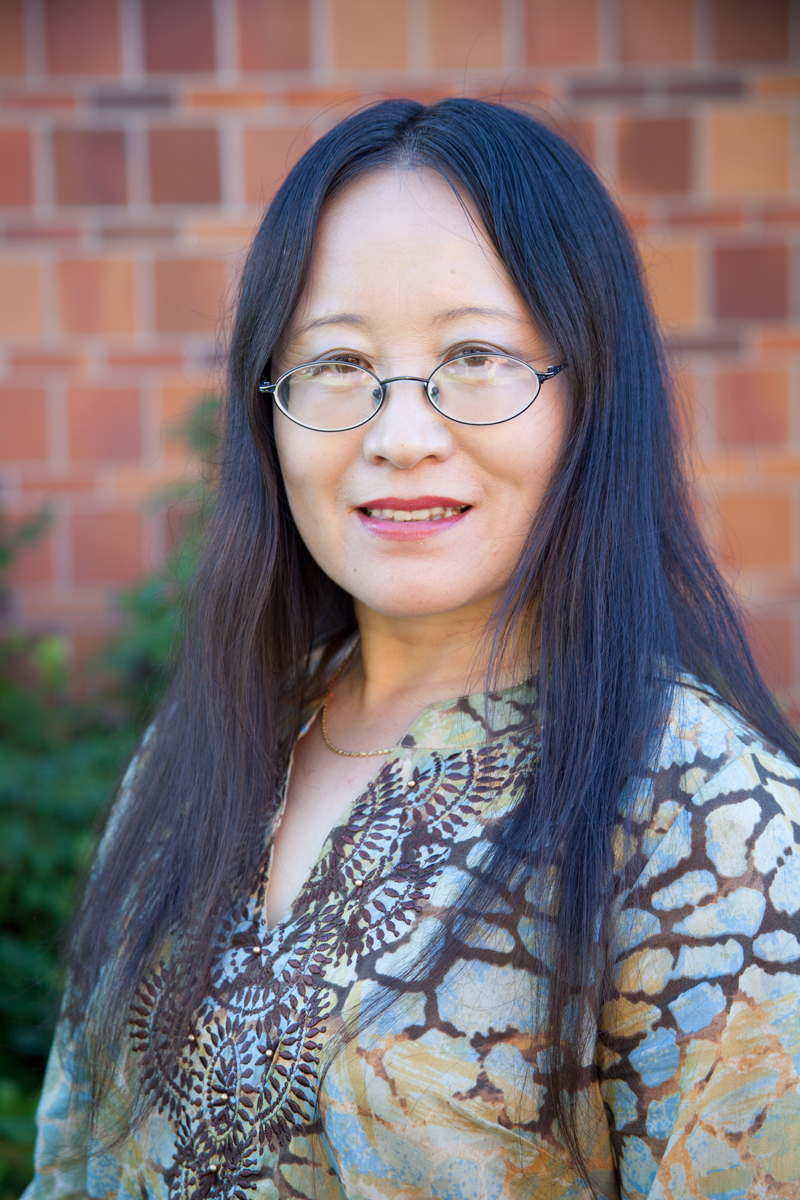
Xiaodong Liang
Professor
University of Saskatchewan, Canada
Speech Title:Deep Reinforcement Learning and Dynamic Microgrid Formation-Based Service Restoration in Electrical Distribution Networks
Abstract: The service restoration capability to critical loads after disruptions on the main grid is a key indicator of a resilient distribution system. Forming microgrids with dynamic boundaries is a promising service restoration solution to improve the distribution system’s resiliency. By incorporating a variety of energy sources, a distribution network can be partitioned into multiple self-adequate microgrids, through which the restoration is improved and the power supply continuity to critical loads is maintained. This speech covers a novel dynamic microgrid formation-based service restoration method using deep reinforcement learning. The deep Q-network is employed to obtain optimal control strategies for microgrid formation. We have introduced a new way for the agent to choose actions when building a microgrid using the deep Q-learning method, which ensures that the microgrid has a feasible radial structure. The proposed service restoration method enables real-time computing to facilitate online formation of dynamic microgrids and adapts to changing conditions. It is validated by case studies using the modified IEEE 33-node test system and a real 404-node distribution system operated by Saskatoon Light and Power in Saskatoon, Canada.
Biography:Prof. Xiaodong Liang received her Ph.D. degree in electrical engineering from the University of Alberta, Edmonton, Canada, in 2013. She is currently a Full Professor and Canada Research Chair in Technology Solutions for Energy Security in Remote, Northern, and Indigenous Communities with the University of Saskatchewan, Saskatoon, Canada. Dr. Liang’s research interests include power systems, renewable energy, and electric machines, and she has published more than 300 peer-reviewed publications. She is a Fellow of IEEE and IET, Deputy Editor-in-Chief of IEEE Transactions on Industry Applications, and Co-Editor-in-Chief of IEEE Canadian Journal of Electrical and Computer Engineering. She also serves as Member-at-Large at the IEEE Industry Applications Society (IAS) Executive Board.
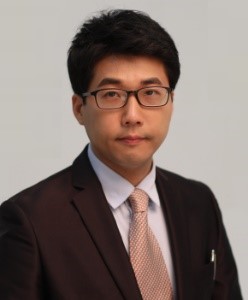
Jun-Ho Huh
Professor
National Korea Maritime and Ocean University, Republic of Korea (South Korea)
Speech Title:Trends in Artificial Intelligence in Smart Aquaculture Future
Abstract:In this Keynote, Prof. Jun-Ho Huh will begin with a concise overview of the history of Artificial Intelligence and Big Data, followed by an introduction to major landmark research publications from the Google DeepMind team that appeared as Cover Papers in Nature, including Google AlphaGo, Google AlphaGo Zero, Google Ithaca, and Google AlphaFold, as well as recent trends in Artificial Intelligence.
Prof. Huh will then highlight key AI-related research in the aquaculture field, such as the May 2025 IEEE Spectrum article titled “This Alphabet Spin-off Brings ‘Fishal Recognition’ to Aquaculture: Tidal’s AI and Robots Make Salmon Farming More Sustainable,” which has received significant attention. He will also introduce leading academic journals such as the 113-year-old Proceedings of the IEEE, the newly launched IEEE Transactions on AgriFood Electronics, IEEE Transactions on Big Data, and IEEE Transactions on Artificial Intelligence.
In addition, Prof. Huh will present his research outputs from 2017 to 2026 in Artificial Intelligence applied to marine science and aquaculture, including published SCI Index papers (SCI, SCIE, SSCI), submitted manuscripts, and ongoing research projects, followed by a discussion on effective publication strategies.
Finally, Prof. Huh will introduce the achievements of the projects he has led, including the 2024 national award–winning project by the National Institute of Fisheries Science selected as the No. 1 achievement by public vote in the Republic of Korea (South Korea) “Image Data Training and Comparative Analysis Using a Dataset for Single Oyster Fatness Characterization / 개체굴 비만도 특성 조사를 위한 이미지 데이터 학습 및 데이터셋을 활용한 비교 분석,” as well as its 2025 extension project, “Development of Single Oyster Sorting and Management Factors Using AI.”
Biography:Ho Huh received his B.S. in Applied Marine Sciences and B.E. in Computer Engineering from Jeju National University (2007), his M.A. in Computer Science Education from Pukyong National University (2012), and his Ph.D. in Computer Engineering from the same university (2016).
He has received several major awards, including the Best Paper Minister Award (Ministry of Trade, Industry and Energy, 2016), the Springer Nature Most Cited Paper Award (HCIS, 2019), and a Commendation for Contributions to Busan’s Data Industry (2023).
He has served as Organizing Chair for multiple international conferences (MITA 2019, MITA 2021) and held editorial roles in several journals, including Managing Editor or Associate Editor of JIPS, JMIS, HCIS, and JICCE. Since 2023, he has been the Editor-in-Chief of The Journal of Global Convergence Research. Since 2025, he serves as Vice President of the Korea Institute of Information and Communication Engineering.
Prof. Huh has been a Technical Committee member of IFAC in several fields since 2017 (Networked Systems, Computational Intelligence in Control, Marine Systems, Distributed Parameter Systems).
His academic career includes positions at the Catholic University of Pusan and National Korea Maritime and Ocean University (KMOU), where he is currently a Full Professor (Tenured) in Data Informatics/Data Science. He also serves as Director of the Big Data Center for Total Lifecycle of Shipbuilding and Shipping, and participates in multiple national research programs related to ocean renewable energy and marine safety.
He is the author of two monographs with IGI Global (2018, 2023), has published/edited more than 20 books and special issues, and has been listed as an Elsevier/SCOPUS World Top 2% Scientist (2023–2025). He has published over 120 SCI/SCIE/SSCI papers, with more than 4800 citations and an h-index of 36.
He has delivered invited talks and keynote speeches at various international conferences and universities in Vietnam and Korea.
Google Scholar: https://scholar.google.co.kr/citations?user=cr5wjNYAAAAJ
Scopus: https://www.scopus.com/authid/detail.uri?authorId=56438784800
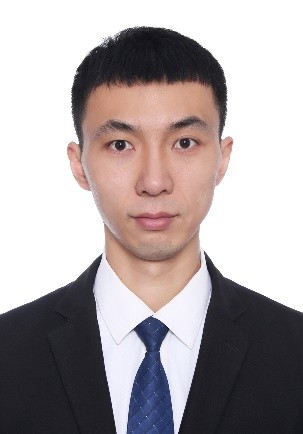
Shou Feng
Associate Professor
Harbin Engineering University, China
Speech Title:Deep Reinforcement Learning and Dynamic Microgrid Formation-Based Service Restoration in Electrical Distribution Networks
Abstract:Change detection (CD) aims to reveal the dynamic evolution of the Earth’s surface by analyzing multitemporal remote sensing imagery, exhibiting significant application value in critical domains such as emergency management. With the continuous improvement in the spatial and temporal resolution of remote sensing imagery, traditional CD methods based on handcrafted features are facing increasing limitations. These approaches have gradually become insufficient to meet the demands of increasingly complex and diverse application scenarios. In recent years, fueled by the powerful feature representation capabilities of various network architectures, deep learning-based methods have achieved remarkable breakthroughs in the field of CD. This progress has also given rise to a diverse range of task types, including binary change detection, multiclass change detection, semantic change detection, change captioning, and change detection data synthesis. However, most existing reviews primarily focus on model architectures or supervision strategies, lacking a systematic overview from the perspective of task taxonomy. This keynote presents a task-oriented survey of deep learning-based CD methods for high-resolution remote sensing imagery. It comprehensively summarizes the progress, representative approaches, and application scenarios across different task categories, while also organizing widely used datasets and evaluation metrics. Furthermore, potential future directions are discussed to provide valuable insights for subsequent research.
Biography:Feng Shou, Associate Professor, PhD Supervisor of Harbin Engineering University, Deputy Director of the Key Laboratory of Advanced Ship Communication and Information Technology of the Ministry of Industry and Information Technology, IEEE member, Senior member of the Chinese Society of Communications, Member of the Imaging Detection and Perception Committee of the Chinese Society of Image and Graphics, peer review expert of the National Natural Science Foundation of China, academic dissertation review expert of the Ministry of Education, Visiting Scholar of Indiana University Bloomington, Guest Editor of Remote Sensing, an international authoritative journal in the field of remote sensing. Member of the editorial board of international Journal Frontiers in Imaging, American Journal of Remote Sensing, He also serves as a reviewer for many authoritative academic journals such as IEEE TIP, IEEE TGRS, IEEE GRSL, and Remote Sensing. In the past three years, he has published 20 academic papers as the first/corresponding author in top journals in the field of Remote Sensing such as IEEE TIP, IEEE TNNLS, IEEE TGRS, and 6 papers have been selected as ESI highly cited papers. Published 6 conference papers in IGARSS and other international conferences, applied for 8 national invention patents as the first inventor, and has authorized 4.

Liqiang Jing
PHD
University of Texas
Speech Title:Towards Faithful Large Vision-Language Models
Abstract: This talk outlines a roadmap for building intelligent, faithful, and reliable multimodal natural language interfaces with Large Vision–Language Models. We organize the agenda into three pillars: evaluation, improvement, and practicability. First, we propose fine-grained, modality-aware evaluation protocols to diagnose hallucinations and measure faithfulness across objects, attributes, temporal grounding, and cross-modal consistency. Second, we introduce training and inference strategies—such as alignment with granular feedback and consistency constraints—to improve the faithfulness of model generation. Finally, we assess real-world performance by embedding LVLM-based agents in end-to-end tasks, revealing the gap between lab benchmarks and deployment and pointing to future work on calibrated uncertainty, tool-grounded verification, and robust multi-agent communication.
Biography: Liqiang Jing is a Ph.D. candidate at the University of Texas at Dallas supervised by Prof. Xinya Du. He received the Master degree in the School of Computer Science and Technology from Shandong University in 2023 (advised by Prof. Xuemeng Song and Prof. Liqiang Nie). His research interests include multimodal learning and natural language processing. Now, he is very interested in Evaluation and Alignment for Large Vision-Language Models (LVLMs)/Large Language Models (LLMs), and LLMs/LVLMs as Agents for Real-world Tasks. Some of his research outputs have been integrated into the products of Alibaba, serving more than 200 companies (e.g., Givenchy, L 'Oreal and Nestle). His work DSBench was used by OpenAI for their new ChatGPT agent. He has received numerous honors and grants, including selection as a Best Short Paper Candidate at ACM CIKM 2025, the AAAI AI4Research Best Paper Award (2025), OpenAI Researcher Access Program awards (2024, 2025), and the Lambda Research Grant Program (2025).
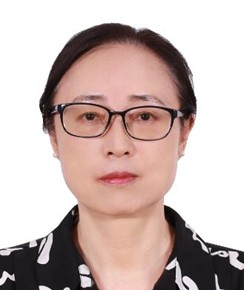
Liming Zhang
Assistant professor
University of Macau
Speech Title:A New Type of Frequency Analysis Method Based on Novel Mathematical Principle – Stochastic Adaptive Fourier Decomposition
Abstract:Frequency-domain analysis—most notably Fourier and wavelet frameworks—has long served as a fundamental tool across scientific and engineering disciplines. Recent studies have demonstrated its growing significance in deep neural networks (DNNs), particularly for interpretability and understanding the spectral nature of learning. Existing research suggests that DNNs tend to acquire low-frequency components at early stages of training while relying more heavily on high-frequency information during decision-making. However, systematic approaches that leverage frequency-domain insights to guide training dynamics and model design remain limited.
This presentation introduces a new line of work based on Stochastic Adaptive Fourier Decomposition (SAFD), a recently developed mathematical framework for spectral analysis. Building upon Adaptive Fourier Decomposition (AFD)—which integrates mathematically interpretable kernels with the flexibility of adaptive dictionary learning—SAFD extends AFD by incorporating stochastic signal theory, enabling the joint discovery of sparse, shared frequency representations across multiple images. The SAFD components exhibit strictly positive instantaneous frequencies, offering a principled structure for frequency-domain characterization. We demonstrate how these properties can be utilized to design frequency-aware analysis modules for deep networks, providing new opportunities for understanding, interpreting, and potentially improving the spectral behavior of DNNs.
Biography:Liming Zhang received the B.S. degree in Computer Software at Nankai University, China and M.S. degree in Signal Processing at Nanjing University of Science and Technology, China. She received her PhD degree in image processing at University of New England, Australia. She is currently an assistant professor in Faculty of Science and Technology, University of Macau. Her research interests include Computer vision, Image processing, Artificial intelligence, Machine learning, and Deep learning. She has published over 100 papers, including IEEE Transactions on Image Processing, IEEE Transactions on Signal Processing, CVPR, ect. The main contribution lies on new image and signal processing methodology – adaptive Fourier decomposition (AFD)- based image processing methods and new deep network development. The image and video compression results based on stochastic AFD (SAFD) exceed the current international image and video compression standards JPEG, JPEG2000, MPEG, and also exceed the compression results of the popular deep networks. SAFD-based deep networks also perform well in alleviating the scarcity of training data.
More keynote speakers are updating....